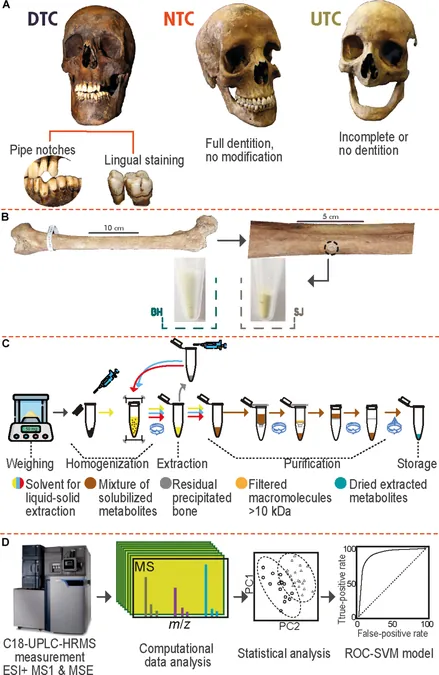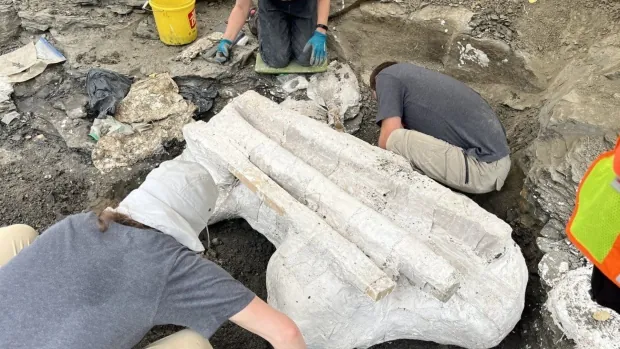
Groundbreaking Study Uncovers Secrets of 18th-Century Smokers Using Bone Metabolites!
2024-10-07
Author: William
Revolutionary Discovery by University of Leicester
A revolutionary team of archaeologists and historians from the University of Leicester has made a pioneering discovery by analyzing metabolites found in bones to uncover the smoking habits of people from centuries past. The study, published in the esteemed journal Science Advances, reveals insights into the lives of 18th-century smokers in England, reshaping our understanding of historical smoking demographics.
Innovative Methodology
Traditionally, identifying ancient smokers relied heavily on physical evidence such as the telltale stains on teeth from clay pipes or the darkened teeth common among smokers. However, not every skeletal remains preserve teeth, which has led researchers to seek innovative methods for identifying smoking activity among historical populations.
The Role of Metabolites
This groundbreaking research explored the possibility of using metabolites—chemical byproducts of metabolism—as a reliable indicator of tobacco use. When tobacco is chewed or smoked, certain metabolites find their way into the bones, allowing scientists to draw connections between skeletal remains and past behaviors. The team sought to discover if these metabolites would be present in the bones of individuals who lived during the tobacco boom in 18th-century England.
Identifying Tobacco Metabolites
To begin their investigation, the researchers needed to identify the specific metabolites associated with tobacco use. They conducted a comparative analysis of bones from confirmed smokers of the 1700s against those from individuals who lived prior to the introduction of tobacco in England in the 1500s. Through this meticulous examination, they identified numerous potential compounds linked to tobacco consumption.
Stunning Findings
The research team then turned its attention to 323 skeletons excavated from cemeteries in North Lincolnshire and London. The results were astonishing—a staggering 50% of the individuals studied were found to be smokers, spanning both genders and various social strata. This challenges previous beliefs that smoking during that era was predominantly a male pastime, highlighting a more complex social dynamic surrounding tobacco use.
A Milestone in Research
The study marks a significant milestone as one of the first to apply metabolic analysis to skeletal remains, enabling researchers to glean insights into substances consumed by people centuries ago. As scientists continue to unravel the lifestyles of our ancestors, these findings offer a fresh perspective on the wide-reaching impact of tobacco in history.
Future Research Opportunities
What other secrets could the bones of the past hold? As research evolves, the potential to uncover hidden stories from centuries ago is limitless! Stay tuned for more revelations that could change everything we thought we knew about our ancestors!









 Brasil (PT)
Brasil (PT)
 Canada (EN)
Canada (EN)
 Chile (ES)
Chile (ES)
 España (ES)
España (ES)
 France (FR)
France (FR)
 Hong Kong (EN)
Hong Kong (EN)
 Italia (IT)
Italia (IT)
 日本 (JA)
日本 (JA)
 Magyarország (HU)
Magyarország (HU)
 Norge (NO)
Norge (NO)
 Polska (PL)
Polska (PL)
 Schweiz (DE)
Schweiz (DE)
 Singapore (EN)
Singapore (EN)
 Sverige (SV)
Sverige (SV)
 Suomi (FI)
Suomi (FI)
 Türkiye (TR)
Türkiye (TR)